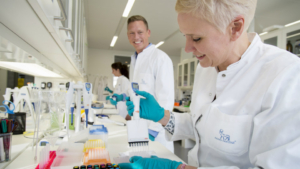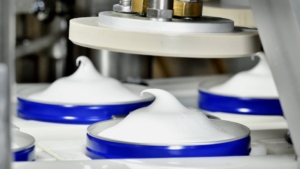
BIO: the synthesis of brilliance
Brussels Greetings readers! The observant of you will note that I have strayed far from Brussels in my quest for knowledge I was lucky enough to attend the BIO convention in Chicago in late April, and where better to listen out for sage advice? So what did I hear?
Well, apart from the great parties (Belgian café at Buddy Guy’s Legends Club) and my failed chance to win a motorbike in the exhibition hall, I learned something very thought-provoking from my favourite panel a session focused on synthetic biology and its amazing potential.
I couldn’t possibly name the speakers, but it provided excellent insights into how much time large companies spend on processes that they would rather not have to do. If you run a large company producing novel crops, for example, you want to focus on the stuff you’re good at producing the final crops themselves rather than on time and money-consuming gene processing tasks. It’s not your speciality, nor is it your firm’s mission. So you have a list of the technologies that you wish existed to make your route to products faster and more effective.
And this is where it got exciting; synthetic biology opens up tremendous market opportunities for smaller companies that can deliver advances in tech tools for processes that large product companies would rather avoid. One such SME (Ginkgo BioWorks) was represented on the speaker panel, and they fill that gap precisely. Their technology can produce organisms to customers’ exact specifications. It was an eye-opening glimpse into how biology will soon be engineered from scratch, and why we will no longer just rely on tweaking existing genomes.
These companies are absolutely typical SMEs (Ginkgo was founded by PhD students). They had to beg, borrow and steal development funds to survive, and show the absolute necessity of genius. Only a bunch of fearless researchers would have founded this firm and invested in it for five years. I can’t see a large service provider investing the time, money and individual commitment required to bring this technology to fruition.
So the session reminded me of two things. The first is that behind every breakthrough product there is a whole pipeline of breakthrough technologies that enabled it. That’s the beauty of biotech of course. Every new field brings multiple commercial opportunities for other new technologies. The second thing which governments everywhere need to remember is that SMEs drive applications for inventions, and you ignore them at your peril. Ginkgo’s fantastic platform was enabled and supported largely through grants. Although it saw little private investment, the firm looks set to help power the next generation of bio-based products. The lesson? If you don’t support innovative SMEs, they can’t deliver.
I’m looking forward to BIO 2014 and hearing from a new wave of SMEs pursuing amazing technologies that will enable the next big product.




 Beiersdorf
Beiersdorf